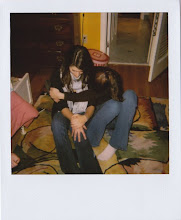 Cell phones ruin everything. No longer does the dashing young man promise to meet his beautiful love interest at a certain place at a certain time, only to be detained by a series of unfortunate complications resulting in a tragic misunderstanding and fate's cruel destruction of what could have been. Now he can just text her and say "sry babe, runnin late."
Cell phones ruin everything. No longer does the dashing young man promise to meet his beautiful love interest at a certain place at a certain time, only to be detained by a series of unfortunate complications resulting in a tragic misunderstanding and fate's cruel destruction of what could have been. Now he can just text her and say "sry babe, runnin late." Screenwriters nowadays face the challenge of tastefully incorporating the inescapable presence of everyday technology into plot.
Some embrace it. In He's Just Not That Into You (2009), Drew Barrymore's character frets about rejection by means of text, e-mail, and MySpace. Roman Polanski's The Ghost Writer features brilliant usage of a GPS system to help unravel a mystery.
The reaction I particularly enjoy seems popular among independent filmmakers--setting movies in non-descript or recent time periods. The Coen brothers have long favored writing movies set in the recent past: Fargo (1996) takes place in 1987, The Big Lebowski (1998) in 1991, and No Country For Old Men (2007) in 1980. Jason Reitman's Juno and Drew Barrymore's Whip It both take place in unidentified years, but don't involve frequent (if any) use of cell phones and computers. Personally, I find it refreshing to see people use pay-phones and spend an hour and a half with no mention of Facebook or Twitter.
Going back to simpler times allows those good old-fashioned elements like plot and character to develop, without any of the distractions that so often keep us from our homework.

No comments:
Post a Comment
Note: Only a member of this blog may post a comment.